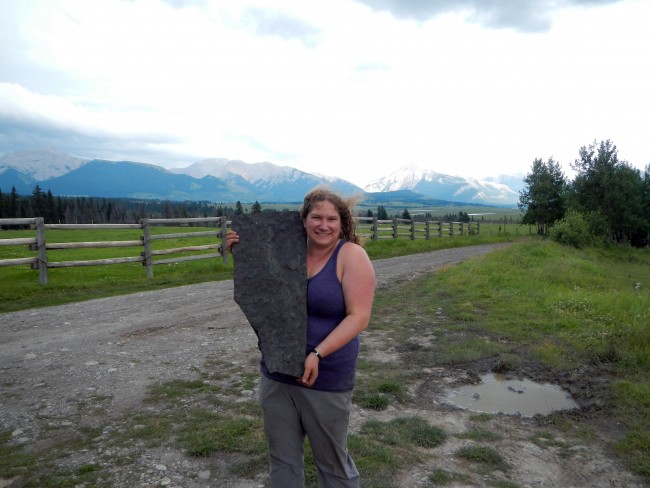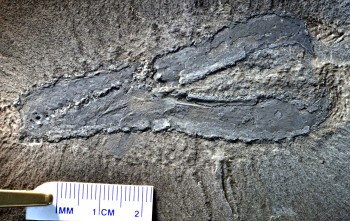Exceptional Fossil Site Records Jurassic Reef’s Decline
November 20, 2017

About 183 million years ago in what is now the Canadian town Banff, a marine ecosystem was teeming with shrimp, vampyropods and ichthyosaurs.
But then a period of low ocean oxygen made life perish and perish beautifully, turning delicate exoskeletons that aren’t usually preserved into exceptional fossils.
Research led by Rowan Martindale, an assistant professor at the Jackson School of Geosciences, documented the diversity of fossils and investigated the impact the low oxygen event had on the marine ecosystem.
The findings were respectively published in Geology in January 2017, and in Palaeogeography, Palaeoclimatology, Palaeoeconology in July 2017.

Both studies investigate a recently discovered fossil site in Canada located at Ya Ha Tinda Ranch near Banff National Park in southwest Alberta. The site records fossils of organisms that lived about 183 million years ago during the Early Jurassic in a shallow sea that once covered the region.
The fossil site broadens the scientific record of the Toarcian Oceanic Anoxic Event, a period of low oxygen in shallow ocean waters that is hypothesized to be triggered by massive volcanic eruptions.
The fossils show that before the anoxic event, the Ya Ha Tinda marine community was diverse and included fish, ichthyosaurs (extinct marine reptiles that looked like dolphins),
sea lilies, lobsters, clams and oysters, ammonites, and coleoids (squid-like octopods).
During the anoxic event, the community collapsed, restructured, and the organisms living in it shrunk.
Since the oceanic anoxic event was a side effect of climate change, looking back at ancient marine communities could be a window into the potential impacts of ongoing and future climate change.
Back to the Newsletter